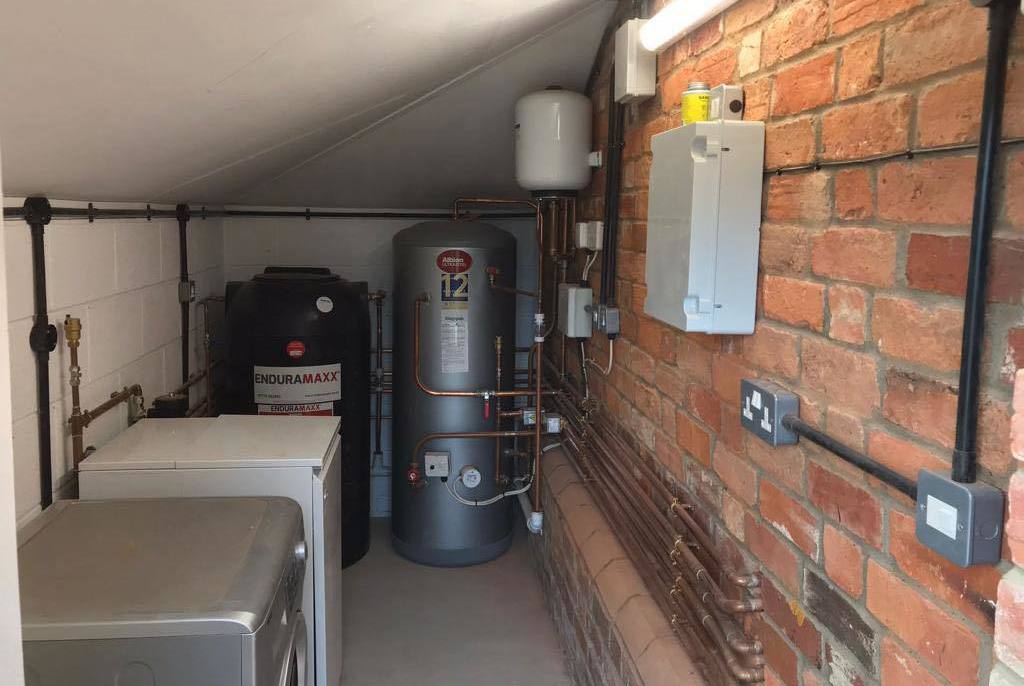When water and electricity work well together
Posted on 10th August 2023

We were pleased to work with local plumbing and heating engineers to complete this neat and tidy boiler room installation.
Generally, water and electricity aren’t a good combination. However, we can create effective and stylish plumbing and heating installations with a safety-first approach.
HVAC – electrical considerations
When building or renovating properties planning the electrical requirements of your heating, ventilation and air conditioning (HVAC) systems is important. Faulty or damaged electrical components and wiring could cause major problems. They need the right electrical power supply too.
A small domestic HVAC unit has very different electrical requirements to a large commercial installation. The right electrical specifications will prevent problems with tripped breakers and system breakdowns and prolong the life of your installation.
When installing a new HVAC system, the first question is whether your existing electrical supply is adequate. Alternatively, if you’re downgrading the size of your system you could reduce the electrical load.
It’s important to confirm in advance the suitability of your electrical supply and breakers. The power required for your HVAC system to function properly depends on the heating and cooling requirements. Multi-duct and split-system units require more electricity and a larger breaker. Your HVAC system should have a dedicated breaker to work properly and prevent damage to other circuits and equipment.
Frequent breaker tripping and system shut downs could indicate you need an electrical upgrade or rewiring. All the electrical wiring for your HVAC installation should be completed by qualified professionals.
Please get in touch if you would like to discuss the electrical requirements for your HVAC installation.
Share this post:




